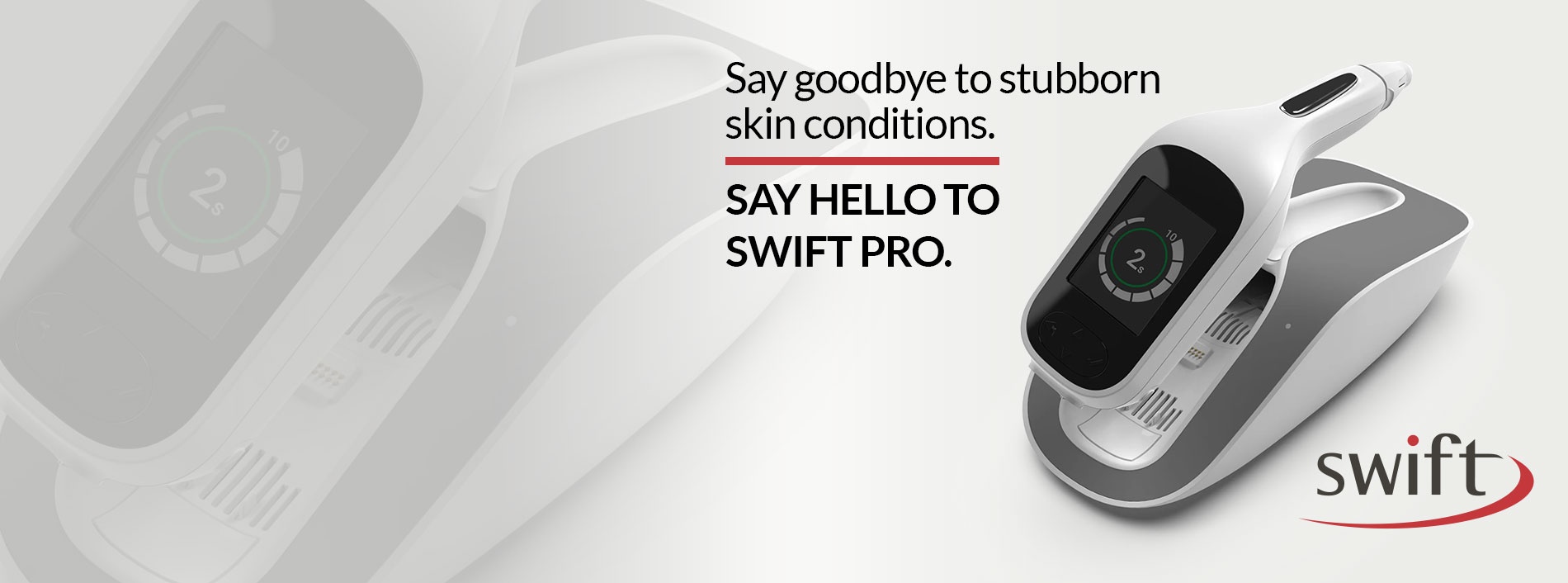
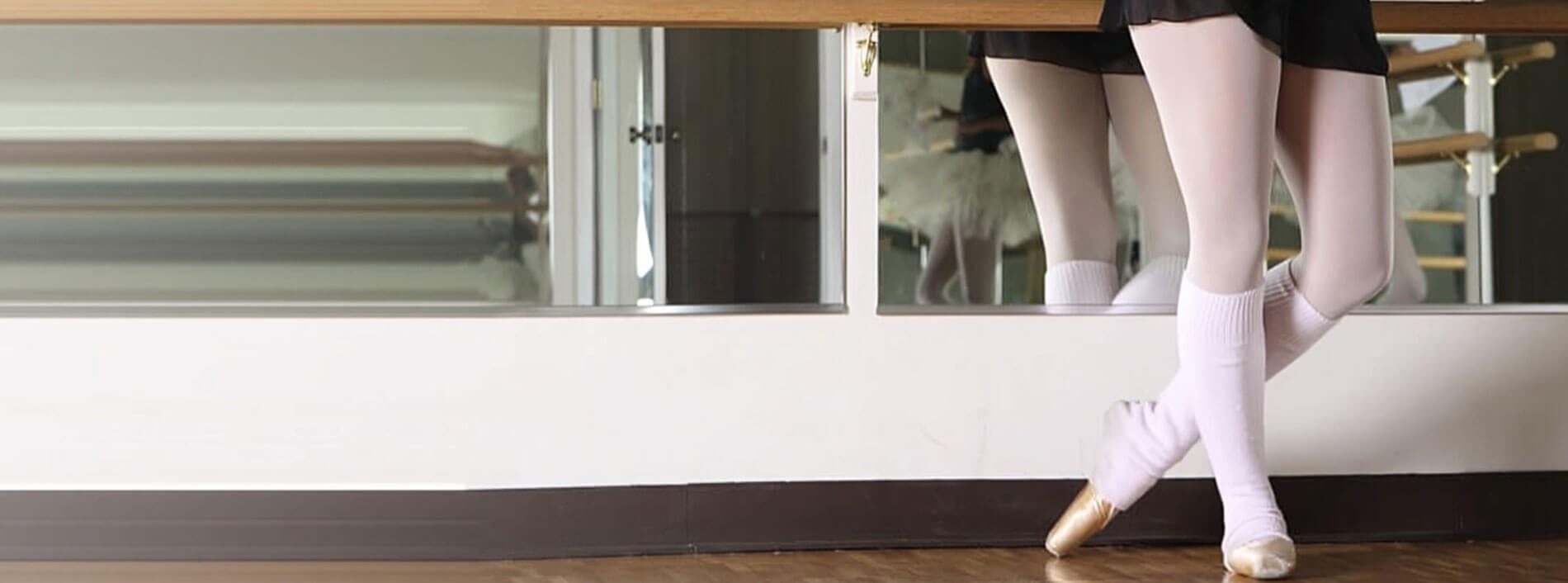
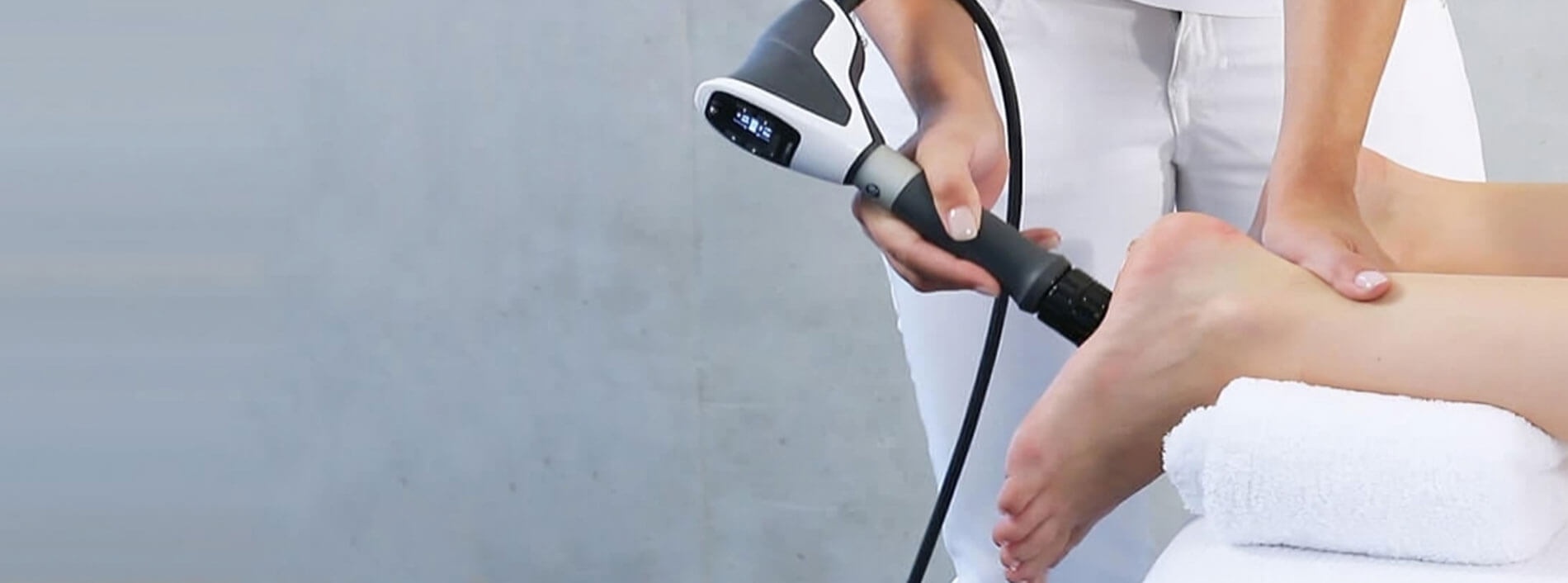
slide-swift-pro-01.jpg
slide-ballet.jpg
shockwave-therapy-curamedix.jpg
WE PROVIDE FOOT CARE FOR THE WHOLE FAMILY
Suffering from foot, ankle or heel pain?
As the official podiatrist for the Boston Ballet, Jordana Szpiro, DPM, FACFAS has the credentials and expertise to treat all your foot and ankle concerns. Located in Boston, MA, our practice, Boston Common Podiatry, has access to various advanced equipment regarding podiatric treatment and procedures, we have on-site x-ray and handicap entrance.
Boston Common Podiatry specializes in heel pain, skin conditions of the foot, sports medicine, general podiatric care, laser wart removal, laser treatment for fungal nails, and we offer custom made orthotics as well! We perform procedures involving surgery, as well as shockwave therapy (EPAT) and Sculptra foot fillers. As a practice, we work with each patient to develop a unique plan that will address all of their problems.
Dr. Szpiro is an expert in laser wart removal and the treatment of toenail fungus through the use of laser therapy. Dr. Szpiro has lectured extensively on various topics, most recently at the APMA Annual Scientific Meeting on laser treatment for toenail fungus. Whatever podiatric concern you may be facing, our doctor is sure to be able to help!
We have an employee that speaks fluent Spanish.
To schedule an appointment, call us at (617) 286-5163. We accept a variety of insurance plans and payment with cash, check, or credit card.
Dear patients,
As you may know by now, the Coronavirus disease, otherwise known as COVID-19, has become a rapidly evolving concern for people across this country and abroad.
We want to assure you that our practice is taking precautionary measures to help maintain the safety and cleanliness of our office. To best help prevent the spread of this disease, we urge you to please contact our office prior to any appointments if you believe you are exhibiting symptoms.
Common symptoms of this virus may include fever, cough, and shortness of breath. This precautionary step is especially important for elderly, diabetic, and pediatric patients, as they seem to be more susceptible to the disease.
Additionally, we advise that you regularly wash your hands, use hand sanitizer, and avoid touching your eyes, nose, and mouth. Avoiding close contact with people who are sick, staying home if you believe you’re getting ill, covering your coughs and sneezes, and disinfecting frequently touched surfaces may also help in the prevention of the Coronavirus.
Our practice is dedicated to providing a safe, and healthy space for our patients, which is why we must all work together as we learn more about this disease. Please feel free to contact our office, and we wish you well.
For more information, please visit the Centers for Disease Control and Prevention website: https://www.cdc.gov/coronavirus/2019-ncov/index.html
Sincerely,
The Boston Common Podiatry team
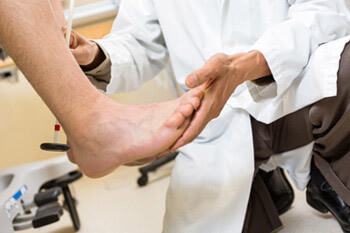 A podiatrist, or Doctor of Podiatric Medicine (DPM), is a professional who is trained in the treatment of injuries or issues concerning a person's feet, ankles, or areas of the lower leg. When it comes to treatments, podiatrists have the ability to reset broken bones, prescribe drugs, request lab tests or x-rays, as well as perform surgery.
A podiatrist, or Doctor of Podiatric Medicine (DPM), is a professional who is trained in the treatment of injuries or issues concerning a person's feet, ankles, or areas of the lower leg. When it comes to treatments, podiatrists have the ability to reset broken bones, prescribe drugs, request lab tests or x-rays, as well as perform surgery.
To become a podiatrist, one must complete 4 years of medical school, as well as 3 years of a residency where they gain real world experience working at a hospital. After those two requirements are completed, some choose to gain further certifications by the American Board of Podiatric Medicine (ABPM) in areas such as surgery of the foot and ankle.
A podiatrist may be of help to you if you are experiencing pain or discomfort due to conditions such as hammertoes, bunions, arthritis, heel pain, ingrown toenails, corns, calluses, fungal nails, flat feet, plantar warts, or athlete’s foot, to name a few. They can also be useful if you are curious about maintaining general care for your feet, picking the correct shoe size, obtaining footwear inserts or orthotics, as well as suggesting stretches or exercises to help strengthen your feet.
If you’re experiencing any problems involving your feet, ankles, or lower leg areas, it is highly recommended that you consult with a podiatrist near you for a proper diagnosis and treatment regime.
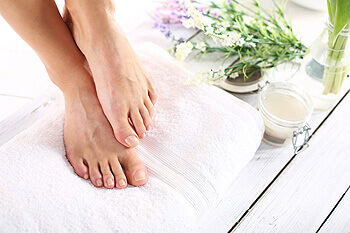 Receive top-rated foot and nail care with the option to be evaluated by an expert podiatrist! Along with our general medical, surgical, and aesthetic podiatry services, Boston Common Podiatry also offers physician-supervised, safe, and sterile medical pedicures that include a consultation and treatment with the doctor if requested.
Receive top-rated foot and nail care with the option to be evaluated by an expert podiatrist! Along with our general medical, surgical, and aesthetic podiatry services, Boston Common Podiatry also offers physician-supervised, safe, and sterile medical pedicures that include a consultation and treatment with the doctor if requested.
Our medical-grade pedicure includes a noninvasive treatment that focuses on the hygienic and aesthetic care of the toenails and soles of the feet. These treatments are the Keryflex™ Nail Restoration System and an EPAT massage.
Keryflex™ Nail Restoration System
The Keryflex™ Nail Restoration System is an innovative new solution available to treat toenails damaged by fungus, infection or injury and restore them to their original appearance. Keryflex™ utilizes polymer resins that bond to the damaged toenail to form an artificial nail that is durable, flexible, and natural in appearance. The painless procedure can be done in the comfort of the office.
The Keryflex™ Nail Restoration System allows for the patient to immediately return to regular daily activities post-procedure. Patients may also receive pedicures or apply nail polish to their Keryflex™ nail.
EPAT Massage
Extracorporeal Pulse Activation Technology (EPAT) Therapy is traditionally used to accelerate the body’s natural healing process. This is done by using pressure waves to treat and heal internal pain typically caused by conditions such as plantar fasciitis, stress fractures, and tendonitis. In addition to healing pain and injuries, EPAT can also be used for massage to ease tense muscles.
 It is never normal for a child to experience pain in his or her feet. Foot pain that lasts more than a few days and limits a child’s ability to walk should be examined by a podiatrist. Many adult foot ailments originate in childhood and may be present at birth. Common foot issues that are experienced by children are pediatric flat foot, Sever’s disease, ingrown toenails, and plantar warts.
It is never normal for a child to experience pain in his or her feet. Foot pain that lasts more than a few days and limits a child’s ability to walk should be examined by a podiatrist. Many adult foot ailments originate in childhood and may be present at birth. Common foot issues that are experienced by children are pediatric flat foot, Sever’s disease, ingrown toenails, and plantar warts.
A child’s foot grows rapidly during the first year. Consequently, foot specialists consider the first year to be the most crucial point in the foot development process. There are ways you can help ensure that your child’s feet develop properly. One way is to carefully look at your baby’s feet. If you notice any deformities, you should immediately seek professional care. You should also loosely cover your child’s foot, since tight coverings may prevent movement and inhibit normal development. Another tip is to change the baby’s positioning throughout the day. If your baby lies down in one spot for too long, it may put an excess amount of strain on the feet and legs.
It is best that you try not to force a child to start walking. Children will begin to walk when they are both physically and emotionally capable to do so. You should also avoid comparing your child’s walking progress with other children because the age range for independent walking varies. When your child’s feet begin to develop, you may need to change both their shoe and sock size every few months to allow room for their feet to grow.
Kids are sometimes prone to splinters, cuts, and severe injuries because they tend to walk around barefoot. This also makes them more susceptible to developing plantar warts, a condition caused by a virus that invades the sole of the foot through breaks in the skin. These ailments can be avoided by making sure your child wears shoes in unsanitary environments. You should also wash any minor cuts or scrapes on your child’s feet.
Kids are also prone to developing Sever’s disease, which is the inflammation of the growth plate in the heel. Typically the result of overuse, Sever’s disease often develops in active children who are experiencing a growth spurt. When a child experiences a growth spurt, the heel bone will often grow faster than the other muscles, tendons, and ligaments in his or her lower extremities. This causes Sever’s disease.
As a parent, you should ensure that your child’s feet are developing properly and are being properly maintained. Consequently, it is important that you perform routine inspections on his or her feet to detect any injuries or deformities in their early stages. Early detection and treatment will help to ensure that your child does not develop any serious foot conditions.
